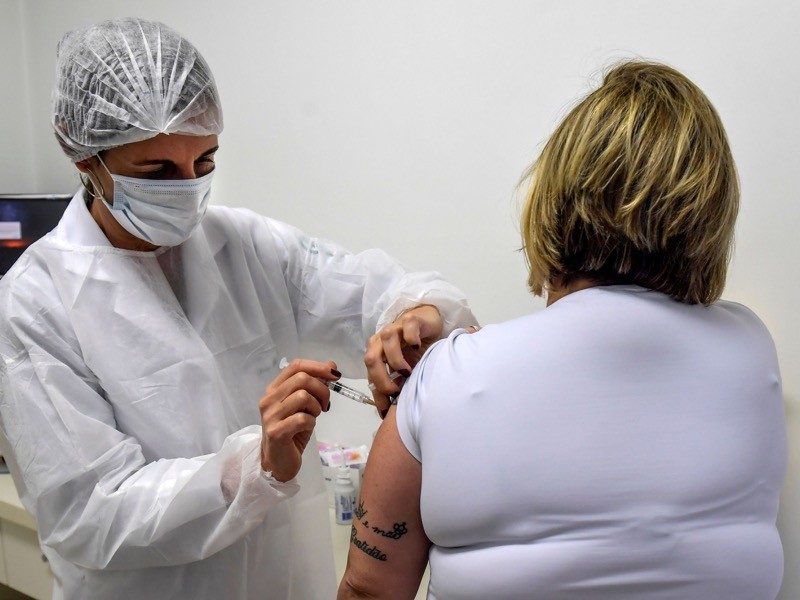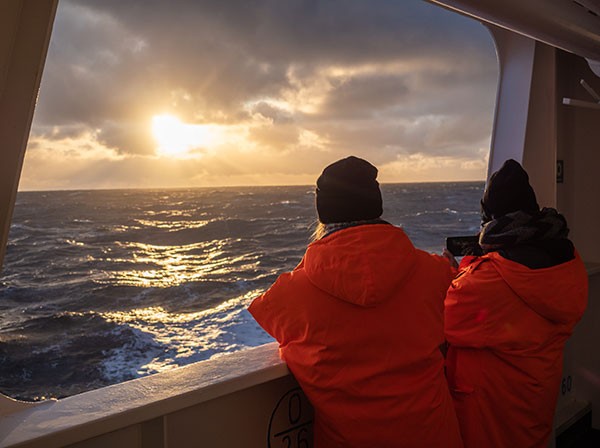Daily briefing: Oxford–AstraZeneca vaccine trial paused for safety reasons
Trial of a leading coronavirus vaccine candidate put on hold, the double-edged sword of forensic genealogy and nine mistakes we make about the pandemic.
by Flora GrahamHello Nature readers, would you like to get this Briefing in your inbox free every day? Sign up here
COVID-19 coronavirus update

Credit: Nelson Almeida/AFP/Getty
Oxford–AstraZeneca vaccine trial paused
Enrolment in global trials of a leading coronavirus vaccine candidate are on hold after a ‘suspected adverse event’ in a person who received the vaccine in the United Kingdom. The drug is being developed by the University of Oxford in collaboration with the pharmaceutical company AstraZeneca. “This is a routine action which has to happen whenever there is a potentially unexplained illness in one of the trials, while it is investigated,” AstraZeneca said in a statement. It is the second time that enrolment has been paused — in the first case, the person was found to have an illness unrelated to the vaccine. “If the event is linked definitively, or even probably, to the vaccine, it could be a definitive blow to this particular vaccine candidate,” says vaccine researcher Marie-Paule Kieny. “If unrelated, the hold might be lifted in a matter of weeks.” The move shows that safety systems are working, say scientists, even under unprecedented pressure and politicalization of the process.
Nine mistakes we make about the pandemic
From false dichotomies — save lives or save the economy? — to the ‘prevention paradox’ that breeds complacency when public-health measures work, many of us suffer from conceptual errors when it comes to coronavirus. The Atlantic lays out nine ways our intuition can steer us in the wrong direction and why they have snowballed to undermine the pandemic response in the United States.
Notable quotable
“We are asking: Are you feeling cured? Almost half the patients say no.”
Infectious-disease physician Serena Venturelli says that follow-ups at her hospital in Bergamo, Italy — the former epicentre of the coronavirus pandemic — reveals that survival is just the beginning for many patients. (The Washington Post)
News

Alfred-Wegener-Institut/Jan Rohde (CC-BY 4.0)
Female Arctic researchers told how to dress
Eighteen graduate students who were part of the epic MOSAiC research expedition to study the Arctic have voiced concern about a ban on “too tight or too revealing” clothes for women on board a research vessel, as well as other sexual discrimination issues. E&E News journalist Chelsea Harvey, who was present when the clothing rules were announced on the Akademik Fedorov ship, reports that women were told that “the rules prohibiting tight clothing were a ‘safety issue’” — implying that this would avoid sexual abuse by men on the ship. Days before, several women reported they’d been harassed. The mission’s chief scientist, Thomas Krumpen, has since said the dress code was not related to the harassment report, was not aimed at women and contradicted claims that it was safety-related, reports E&E News.
Rocket appears to crash near school in China
Amateur footage posted on Chinese social-media site Weibo seems to show a rocket booster crashing near a school. The booster was part of a Long March 4B rocket that successfully launched a remote-sensing satellite on Monday. Orange clouds in the video might be toxic hydrazine and nitrogen tetroxide, which fuel the rocket’s first stage. The government routinely warns populations near the Xichang Satellite Launch Center of potential risks, but debris from past launches have damaged homes, and reportedly led to the deaths of at least six people in 1996. Most countries build launch sites near a coast to avoid such dangers, but China placed three sites deep inland for security reasons during the cold war.
Features & opinion
The double-edged sword of forensic genealogy
A controversial case led to DNA database GEDMatch tightening its rules on sharing data with law-enforcement agencies. For Parabon Nanolabs, a company which relies on such data, that meant pivoting to a different product: mugshots generated from the scant DNA left behind in crime-scene samples. Both techniques raise a myriad of ethical quandaries, made all the more stark by examples of the state imposing compulsory DNA collection on vulnerable groups in the United States and China. “Because DNA is so powerful, we tend to see it as a silver bullet,” says biologist and engineer Yves Moreau. “It’s like a knife — people underestimate just how sharp they can be.”
Genealogy
60%
The proportion of North Americans of European descent who can be identified using genetic genealogy databases as of 2018 — even those that have not undergone genetic testing.
WeChat for scientists
Researchers outside China might be curious about how scientists are using one of the world’s most popular social networks: WeChat. In a 2019 Springer Nature survey, 94% of 528 respondents in China indicated that they had used WeChat in a professional context. An informal questionnaire by Nature Methods reveals some of the ways that its readers use the platform to nurture collaborations and share results.
The woman behind the isotope
Meticulous work by chemist Stephanie Horovitz, who purified and measured the atomic weights of lead chloride, revealed the first direct evidence for the existence of isotopes. She also proved that a recently discovered element – ionium – didn’t exist. Despite long-time support from her supervisor and co-author Otto Hönigschmid, Horovitz’s contribution to chemistry has been almost forgotten. Her death at the hands of the Nazis at Treblinka in 1942 was mourned by her contemporaries, but Horovitz wasn’t even mentioned in a 1946 Nature Obituary of Hönigschmid. Nevertheless, her name lives on in the scientific record of the extraordinary accuracy of her painstaking work.
Quote of the day
“A crushing, urgent crisis for individuals now risks becoming an existential crisis for a system that needs today’s postdocs to become tomorrow’s research leaders in academia, industry, government and the non-profit world.”
The pandemic has worsened the plight of postdoctoral researchers, reveal the results of a new Nature survey. A Nature Editorial argues that funders should offer more than just moral support.
Read more: Pandemic darkens postdocs’ work and career hopes (Nature | 10 min read)
This newsletter is always evolving — tell us what you think! Please send your feedback to briefing@nature.com.
Flora Graham, senior editor, Nature Briefing
With contributions by David Cyranoski